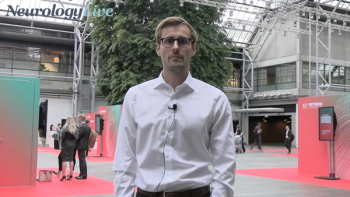
The neurology resident at the University Hospital Frankfurt in Germany talked about a study presented at ECTRIMS 2024 that analyzed time delays in initiating high-efficacy treatments in patients with multiple sclerosis. [WATCH TIME: 4 minutes]

The neurology resident at the University Hospital Frankfurt in Germany talked about a study presented at ECTRIMS 2024 that analyzed time delays in initiating high-efficacy treatments in patients with multiple sclerosis. [WATCH TIME: 4 minutes]
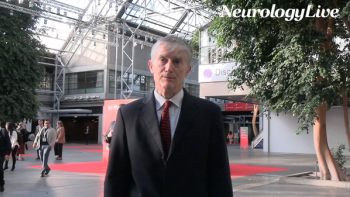
The codirector of the Precision Medicine MS Center at Johns Hopkins University discussed the new updates to the MS diagnostic criteria presented at the 40th ECTRIMS Congress in Copenhagen. [WATCH TIME: 5 minutes]
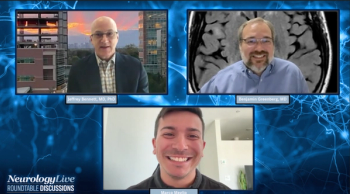
In this episode, a pair of neuroimmune experts discussed some of the emerging research for patients with MOGAD, highlighting the need for immunological markers, remodeling therapies, and enhancements to diagnostic criteria. [WATCH TIME: 5 minutes]

The pair of neurologists provided clinical insight on a number of lingering non-treatment unmet needs for patients with MOGAD, including improved care for pediatric patients and underreported complications like sleep disturbances and genitourinary issues in adults. [WATCH TIME: 5 minutes]
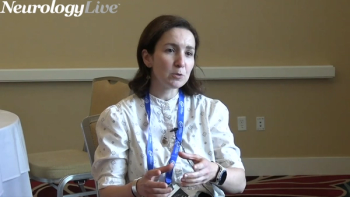
The principal investigator at Seattle Children’s Research Institute provided commentary on the therapeutic potential and hypothesis behind targeting mTOR pathway hyperactivation using pharmacological inhibitors. [WATCH TIME: 3 minutes]

In this discussion, the pair of neurologists explore the latest drug development and ongoing clinical trials for MOGAD, a rare neuroimmune disorder. [WATCH TIME: 4 minutes]

In this segment, Bennett and Greenberg explore the diagnosis, acute treatment, and long-term management of MOGAD, highlighting current therapies and ongoing research. [WATCH TIME: 8 minutes]
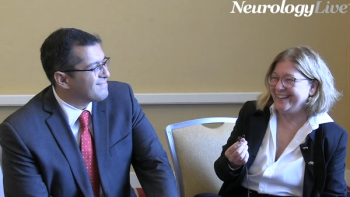
A pair of neurologists from the University of California, Irvine, provided commentary on the ways to help young investigators find their footing in research settings, and exposing them to opportunities major governmental agencies can provide. [WATCH TIME: 4 minutes]

In this episode, Greenberg and Bennett provide some perspective on the fluidity of MOGAD diagnosis and how it could potentially change over time as more is understood about neuroimmune disorders. [WATCH TIME: 5 minutes]

In this segment, the duo of neurologists provided a number of informative considerations treating clinicians should take when diagnosing MOGAD, emphasizing careful testing and interpretation of data in this complex process. [WATCH TIME: 4 minutes]
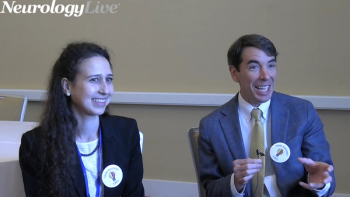
The general neurologist at Brigham and Women’s Hospital described the approach and mindset in teaching neurology as the field continuously evolves. [WATCH TIME: 3 minutes]
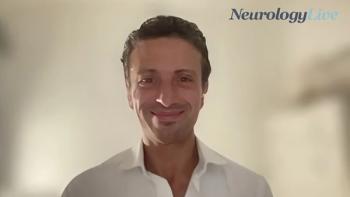
The consultant neurologist at Imperial College Healthcare Trust discussed how smoldering MS challenges traditional views of disease progression, seeking combined therapies targeting both inflammatory activity and mechanisms driving smoldering-associated worsening. [WATCH TIME: 4 minutes]

At the 2024 AUPN Annual Meeting, a pair of neurologists provided perspectives on the attributes and ethics that make a great educator, stressing passion, intellectual humility, and inclusivity, among others. [WATCH TIME: 5 minutes]
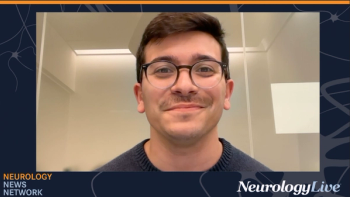
Neurology News Network. for the week ending September 14, 2024. [WATCH TIME: 4 minutes]
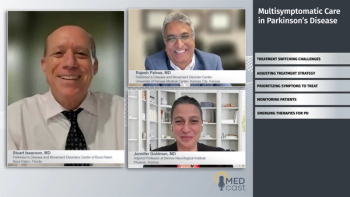
Stuart Isaacson, MD, Rajesh Pahwa, MD, and Jennifer Goldman, MD discuss optimizing PD treatment with levodopa and adjunct therapies, addressing patient and pharmacologic challenges, coordinating care, and anticipating the impact of emerging therapies and upcoming Medicare Part D changes.

The consultant neurologist at Imperial College Healthcare Trust highlighted the importance of acknowledging smoldering multiple sclerosis, urging a shift in therapeutic focus beyond relapses and advocating for a new approach to disease management. [WATCH TIME: 5 minutes]
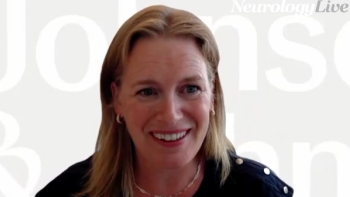
The disease area stronghold leader in neurodegeneration at Johnson & Johnson provided insight on the importance of the Global Neurodegeneration Proteomics Consortium, illustrated in several presentations at the recently concluded AAIC 2024. [WATCH TIME: 7 minutes]

The consultant neurologist at Imperial College Healthcare Trust talked about how smoldering disease in multiple sclerosis encompasses disease progression independent of relapsing activity, thus broadening the scope beyond traditional measures. [WATCH TIME: 4 minutes]
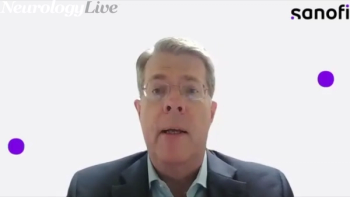
The global head of neurology development at Sanofi discussed the safety profile of tolebrutinib, an investigational BTK inhibitor, and how treatments like it may help transform the care for patients with multiple sclerosis. [WATCH TIME: 5 minutes]

A group of clinician researchers at NYU Langone provided insight on a study presented at AAIC 2024 looking at the correlations between quantitative gait measures and Alzheimer disease biomarkers. [WATCH TIME: 4 minutes]

The chief executive officer and founder at CureDuchenne discussed efforts to bring specialized physical therapy and infrastructure support to underserved regions to improve care for patients impacted by Duchenne worldwide. [WATCH TIME: 5 minutes]
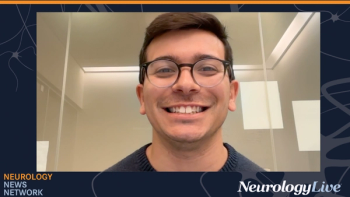
Neurology News Network. for the week ending September 7, 2024. [WATCH TIME: 4 minutes]

The global head of neurology development at Sanofi provided insight on how tolebrutinib may overcome the challenges of treating non-relapsing secondary progressive multiple sclerosis. [WATCH TIME: 5 minutes]
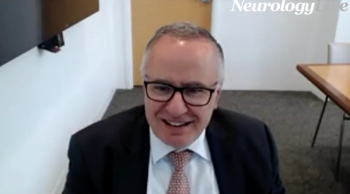
The director of Cleveland Clinic’s Epilepsy Center at the Cleveland Clinic Neurological Institute provided commentary on the future outlook of gene therapies for patients with epilepsy, and some of the knowledge and technical barriers clinicians currently face. [WATCH TIME: 5 minutes]
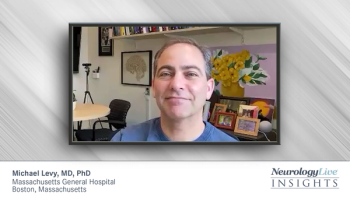
This discussion examines the 138-week data on ravulizumab for NMOSD, focusing on long-term relapse rates, and share practical tips for effective NMOSD management in clinical settings.

The medical director of the Toronto Memory Program at the University of Toronto provided an in-depth overview of results from an ongoing phase 1 study assessing mivelsiran as a treatment for patients with early-stage Alzheimer disease. [WATCH TIME: 8 minutes]
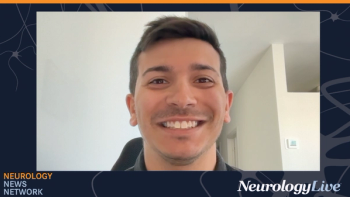
Neurology News Network. for the week ending August 31, 2024. [WATCH TIME: 4 minutes]

The director of Cleveland Clinic’s Epilepsy Center at the Cleveland Clinic Neurological Institute discussed the parameters of an upcoming educational event that highlights the current and future role of sEEG in epilepsy surgery. [WATCH TIME: 5 minutes]
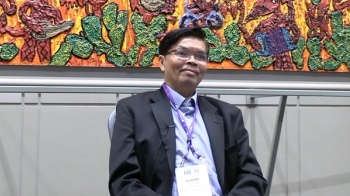
The chairman and chief executive officer at Biomed discussed the additive benefits of combination therapy for Alzheimer disease, providing context on the strengths of different drugs and how it might lead to a more precision medicine approach. [WATCH TIME: 6 minutes]

This discussion examines how disability accumulation may be influenced by the use of less efficacious treatments, compares the efficacy of novel and traditional NMOSD agents in clinical practice, and reviews relapse rates associated with FDA-approved treatments versus off-label and older therapies.